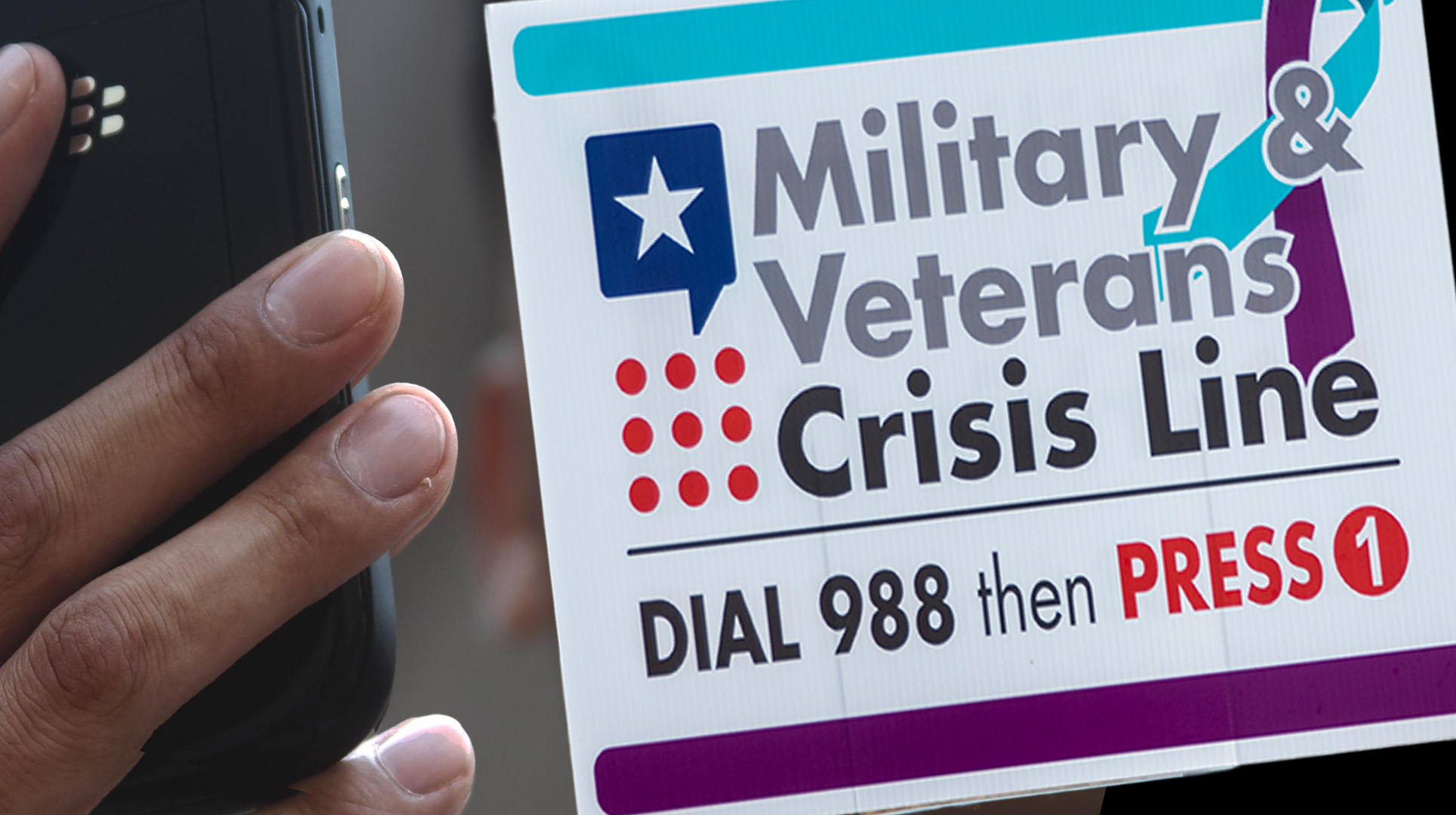

A U.S. Senator is demanding an investigation into the national Veteran Crisis Line after one of its phone counselors failed to properly intervene in a veteran’s suicide attempt, ending in the veteran’s death.
“If the Veterans Crisis Line is letting veterans who reach out in moments of desperation slip through the cracks, as alleged, it needs to be known and it needs to be stopped,” Sen. Jerry Moran (R-Kan.), ranking member of the Senate Committee on Veterans’ Affairs wrote to the Government Accountability Office, a government watchdog agency.
In 2022, nearly one million veterans contacted the crisis line, a 15% increase from 2020. The Department of Veterans Affairs has operated the line since 2007. Moran asked the GAO to audit the policies and workforce practices of the Veterans Crisis Line, or VCL office which employs the counselors who answer the line, a position the VA calls responders.
In his letter to the GAO, Moran cited a damning Department of Veterans Affairs inspector general report from September which detailed a specific case of a VCL responder who failed to follow prescribed steps when they fielded a call from a suicidal veteran.
The veteran contacted the crisis line and shared plans to commit suicide with a belt and hook in their garage. According to the report, the VCL responder didn’t acknowledge a stated suicide attempt. They also failed to assess the patient’s intent to use alcohol after the veteran said, “Part of me wants to get drunk enough to get it over with and part of me is scared I will.”
The responder ended the text conversation without checking that the patient followed through on a safety plan which meant going into the house and involving a family member. An autopsy determined that the veteran hanged themselves nearly 10 minutes after the responder’s last text message.
The head of the VA said that the agency takes seriously any reports of failures with the VCL.
“VA takes any allegations of insufficient care or service very seriously and will investigate thoroughly,” VA Secretary Denis McDonough wrote in a letter responding to Moran.
McDonough also responded that the VCL is an effective program, citing studies that found that veterans who called the hotline were five times more likely to have less distress and suicidal ideation at the end of a call than at the beginning. They were also 11 times more likely to have less suicidal urgency at the end of a VCL call.
“Among Veterans who had suicidal thoughts who called VCL, 82.6% reported that using the VCL played a role in stopping them from acting on those thoughts,” he wrote.
Since 2022, the line has been accessible by dialing 988, the three-digit number for the National Suicide Prevention Lifeline, and then dialing 1 for a veteran-specific responder. Since implementing the shortened VCL number, the crisis line has fielded more than 1.3 million contacts, McDonough said.
In his letter to the GAO, Moran called for immediate corrections to systematic failures in the VCL office and the replacement of program leaders holding up efforts to improve transparency. In his letter, Moran noted a lack of standard operating procedures and inadequate oversight identified by the inspector general and by his staff’s interviews with current and former employees.
Subscribe to Task & Purpose Today. Get the latest military news and culture in your inbox daily.
One of the issues of concern highlighted by Moran was that staff transferred veterans with complex needs to a special unit that was severely understaffed and undertrained.
In his response letter, McDonough addressed Moran’s concerns about the “Callers with Complex Needs” Program which he said follows best practices by other crisis call centers. The program includes callers who show inappropriate behavior like cursing at responders, sexual behavior, or high-frequency calling for reasons outside of crisis support.
“Oftentimes, these callers are not Veterans — or those calling on behalf of Veterans — and can take up resources that would normally be used to serve Veterans in immediate crisis,” McDonough said.
These callers are directed to specially trained responders who receive an extra 32 hours of training on behavior-shaping, boundary-setting, and coaching. The team has grown by 24% over the last three years and is continuing to expand, he said.
“The Veterans Crisis Line is on the front line to support veterans whose health and safety are at heightened risk. Any mismanagement of this critical program unduly increases that risk and is completely unacceptable,” Moran said.
He requested that the GAO audit include information on VCL operations, staffing plans, workforce continuing education/training, record retention, information security controls, VA management structure, and veteran follow-up procedures.
The VA plans to release its annual veteran suicide report on Thursday, November 16 which will include updated information about the VCL’s patient usage and workforce plans.
If you or someone you know is struggling or in crisis, help is available. Call or text 988 or chat 988lifeline.org.
To contact the Veterans Crisis Line: Dial 988 then Press 1, chat online, or text 8382.
The latest on Task & Purpose
- The top 10 Army unit patches from glider units to PSYOP
- 20 Years after iconic photo, Chinook pilots look back on mission
- Troops and veterans don’t like ‘Thank You For Your Service’ — so what’s better?
- Military officers used prostitution ring that checked IDs, credit cards, employers
- Did a stimulant known as ‘the drug of jihad’ fuel Hamas terror on Oct. 7?
